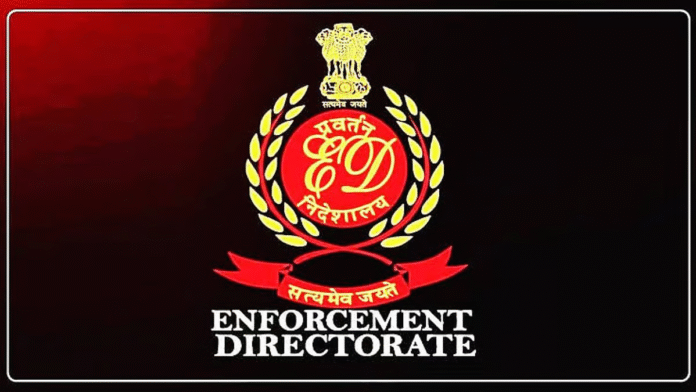The Enforcement Directorate (ED) in Kolkata has alleged that assets of the Sahara Group, acquired using public deposits, were being sold off in clandestine cash transactions. The central agency made the claim in a statement issued on Monday, confirming that a charge sheet had been filed before a special Prevention of Money Laundering Act (PMLA) court in Kolkata on September 6.
The prosecution named two individuals, Anil V. Abraham and Jitendra Prasad Verma, as accused in the case. Both are currently in judicial custody following their arrest by the ED earlier this year. According to the agency, Abraham served as an executive director in Sahara Group’s core management team, while Verma, a property broker, had long been associated with the group.
The ED’s statement said that investigations revealed systematic disposal of group assets through unaccounted cash transactions. The agency claimed that Abraham and Verma were central to the process, facilitating, coordinating, and executing transactions that involved the alienation of Sahara properties. The charge sheet was filed under Section 44 of the PMLA within 60 days of their arrest, naming them alongside other individuals and entities.
The money laundering case stems from a series of more than 500 FIRs lodged by police against Sahara Group entities, including Humara India Credit Cooperative Society Ltd. The complaints accused the group of cheating depositors by forcing redeposits and refusing to release maturity payments. The ED has alleged that the practices amounted to a large-scale Ponzi scheme.
In a separate development linked to Sahara’s financial dealings, the Supreme Court last week directed that Rs 5,000 crore from the group’s deposits be disbursed to investors. The amount will be taken from the over Rs 24,000 crore Sahara had deposited with market regulator SEBI and transferred to the Central Registrar of Cooperative Societies.
The apex court’s order, delivered on September 12, extended the timeline for disbursal of this tranche from December 31, 2025, to December 31, 2026. The direction followed an earlier ruling in March 2023, where the court approved a similar request from the Centre to allocate Rs 5,000 crore for returning dues to depositors of Sahara’s cooperative societies.
As per the order, the transfer of funds must take place within a week, under the supervision of former Supreme Court judge R. Subhash Reddy. The registrar has been asked to ensure that the payout goes only to genuine depositors after scrutiny of claims, following procedures outlined in the March 2023 judgment.
The dual developments underscore the continuing legal and financial scrutiny surrounding the Sahara Group. On one side, the ED is pursuing allegations of clandestine disposal of assets through cash channels, pointing to the involvement of former executives and associates. On the other, the judiciary is focused on providing relief to lakhs of small depositors who were entangled in Sahara’s cooperative schemes.
The ED’s ongoing probe is expected to widen as investigators examine additional transactions linked to Sahara’s properties. Meanwhile, the Supreme Court-monitored disbursal process represents a step forward for depositors, though the amount released remains a fraction of the total funds held by SEBI. With both enforcement action and judicial oversight continuing, the case against Sahara remains one of the most closely watched corporate and regulatory matters in the country.





